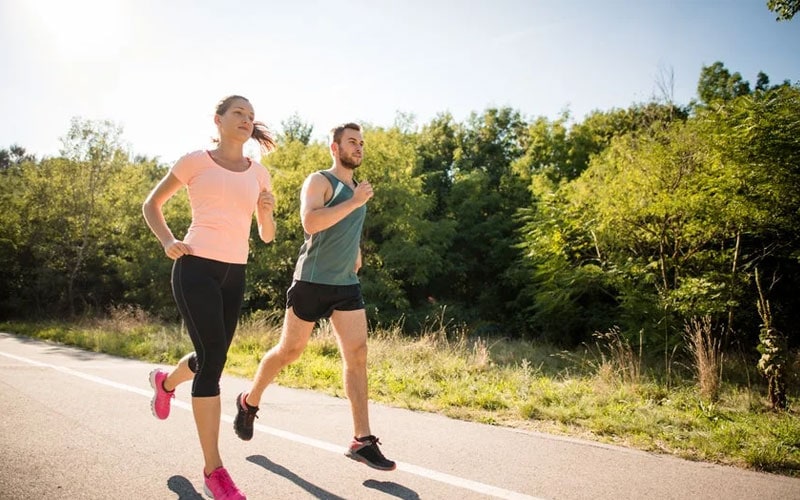
If you’re new to running, you probably have a million and one questions. But if you don’t have any close friends who are runners, you can’t always get good answers to these questions.
As a result, you might be making some costly mistakes that compromise your results and/or hurt your health.
Let’s explore a few of the biggest ones, so you can avoid them and get better results immediately.
New to Running? Don’t Make These Mistakes
Not Having a Plan
Going on a run seems pretty straightforward, right? You lace up your sneakers, run around the block until you feel tired, and then come home and take a shower.
But in reality, there’s a lot more that goes into running (if you’re serious about building stamina, staying healthy, and achieving specific fitness goals).
Before getting started, it’s a great idea to meet with a personal trainer. It’s even better if you partner with an online running coach who can provide customized workout plans for you. Some coaches will even offer additional services like meal planning, feedback, data and analytics, video guides, and more.
Trying to Do Too Much Too Soon
There’s a temptation to try to do too much too soon. But if it’s been a while since you’ve gone on a run, you don’t want to overdo it. It’s easy to burn yourself out or even injure yourself by pushing too hard in the first few weeks.
Running is all about stamina and physical development. It takes time to build up the necessary lung capacity, endurance, and muscles to be able to run three miles, five miles, or 15 miles in a day. Start small and incrementally scale up. Your first run might be one mile, then you might go to two miles after a couple of weeks, and then three miles, etc. Don’t get too focused on your pace at this point. Endurance is the most important thing. You can speed up once your endurance improves.
Not Warming Up and Cooling Down
It’s important to do a warm-up before running. Warming up provides a number of benefits, including:
- Gradually increases your body temperature
- Improves muscle performance and prevents strains
- Increases cardio performance (allowing for better oxygen uptake)
- Injury prevention and better joint load distribution
Cooling down is equally important. It allows your body to relax, lowers your heart rate in a controlled manner, and helps your body maximize its recovery. The best way to cool down is by walking at a comfortable pace for at least 10 minutes after you finish your run.
Improper Footwear
You don’t need a fancy $250 pair of running shoes. You do, however, want to wear the proper footwear. Shoes that are not designed for running and physical activity can lead to painful foot conditions and injuries that prevent you from being able to run in the future.
Purchase a decent pair of running shoes that fit you properly. (You should be able to find some for $60 or less.) Eventually, as you become more advanced, you can upgrade your shoes and get a custom fit.
Wrong Diet and Nutrition
So much of becoming a serious runner is about the right diet and nutrition. When you run, you burn a ton of calories and sweat out a lot of your body’s water reserves. Make sure you’re refilling yourself.
You shouldn’t be afraid of carbs as a runner. While highly-processed foods are never recommended, a healthy intake of carbs will give you the energy you need to run well. As far as hydration goes, you’ll want to increase your water intake by at least 25 percent on days you run.
Unless you’re running for 90 minutes or longer, you probably don’t need to bring any sort of water/fuel with you. Instead, make sure you hydrate in the hours leading up to your run and in the hours after.
Get Better Results
You don’t become a “runner” overnight. It takes time and consistency to develop the habits necessary to consider yourself a runner. There’s nothing wrong with being a newbie.
Use these first few weeks to get your feet under you (literally and figuratively) and maximize every learning opportunity. Before long, your endurance will build and you’ll have the right skills and techniques to stay healthy and achieve audacious goals.







